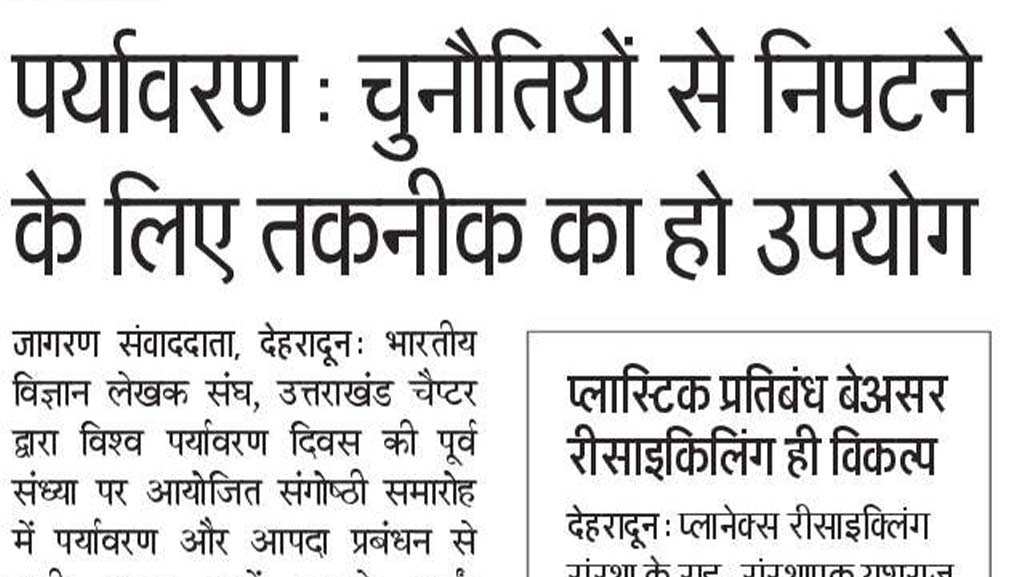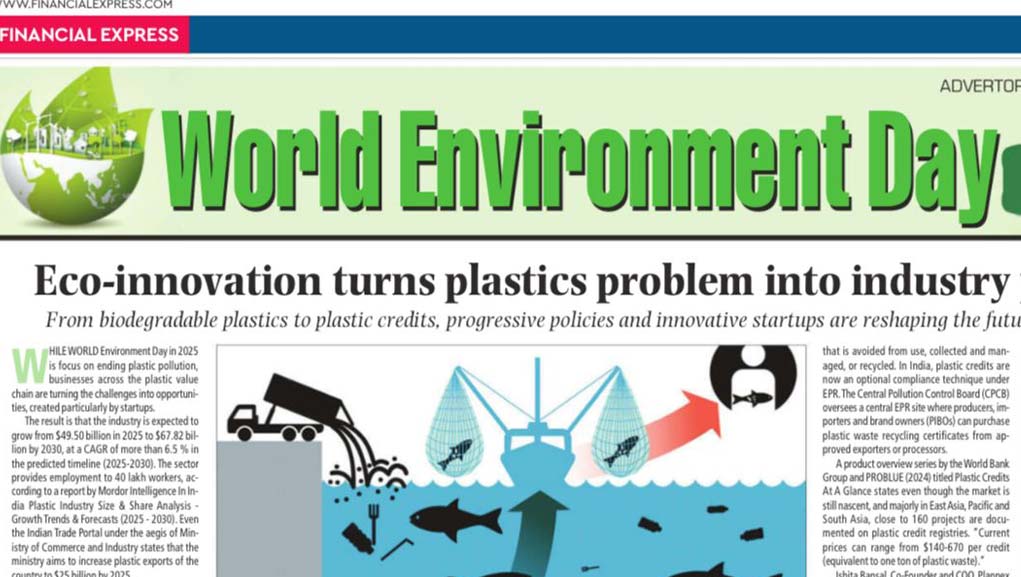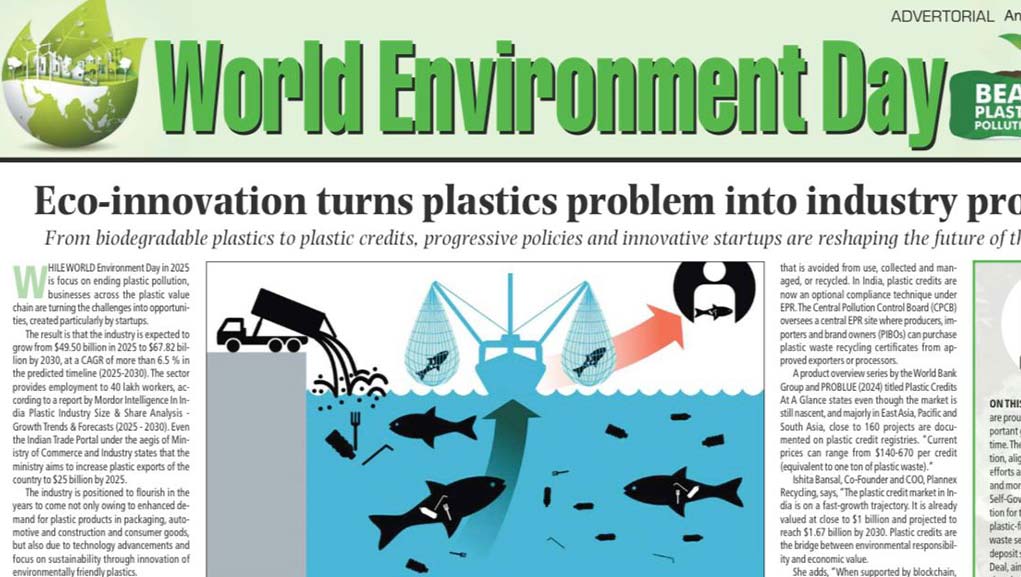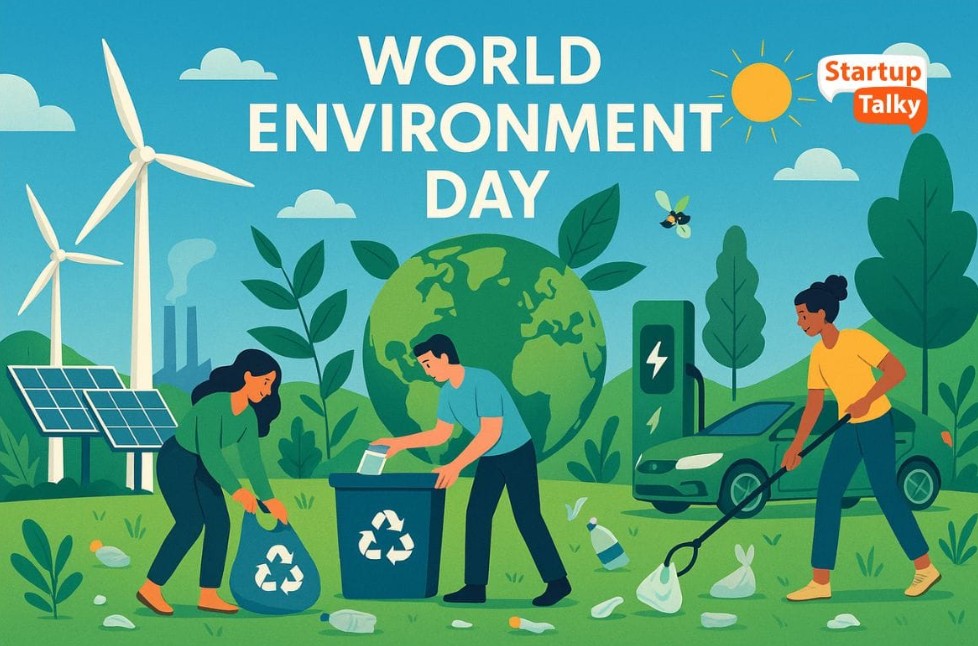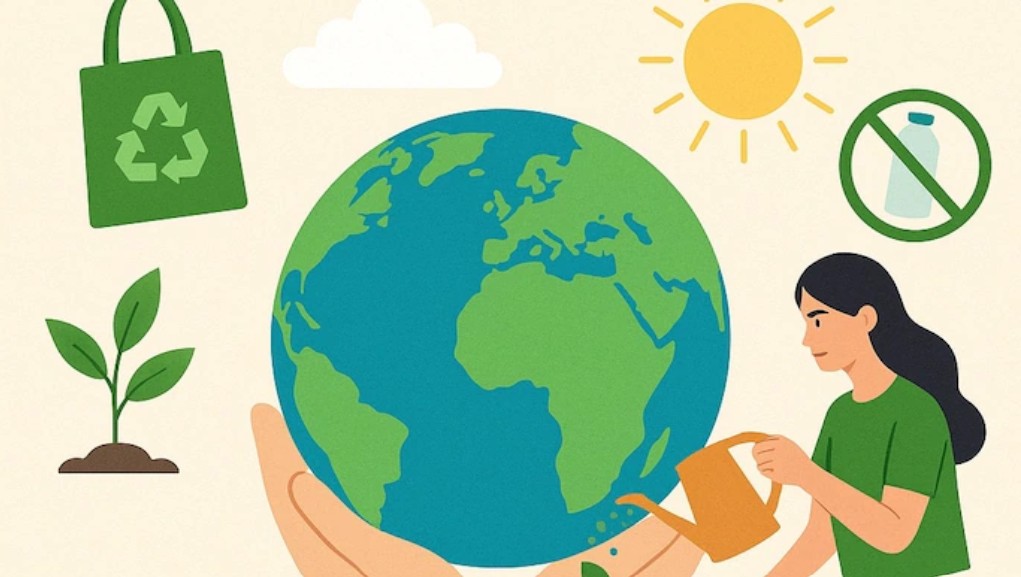जागरण संवाददाता, देहरादूनः भारतीय विज्ञान लेखक संघ, उत्तराखंड चैप्टर द्वारा विश्व पर्यावरण दिवस की पूर्व संध्या पर आयोजित संगोष्ठी समारोह में पर्यावरण और आपदा प्रबंधन से जुड़ी अहम बातें सामने आईं। पर्यावरण की चुनौतियों से निपटने के लिए तकनीक का प्रभावी प्रयोग किया जाना भी जरूरी ठहराया गया। साथ ही सामूहिक भागीदारी और जागरूकता लाने पर जोर दिया। कहा कि प्लास्टिक उन्मूलन के लिए विभिन्न संस्थाएं सामने आ रही हैं।
संगोष्ठी में आपदा प्रबंधन के पूर्व निदेशक डा. पीयूष रौतेला ने कहा कि पर्यावरण की चुनौतियों से निपटने के लिए स्थानीय लोगों की भागीदारी और तकनीक का प्रभावी उपयोग अनिवार्य है। उन्होंने चेताया कि परंपरागत प्रणालियों से दूरी और अनियंत्रित विकास के कारण पहाड़ी क्षेत्रों में जमीन और जल पर अत्यधिक दबाव बढ़ गया है, जिससे मौसम में असामान्य बदलाव देखने को मिल रहे हैं।
भूवैज्ञानिक सर्वेक्षण विभाग कोलकाता के उप महानिदेशक डा. हरीश बहुगुणा ने बताया कि भारत में 90 हजार से अधिक सक्रिय भूस्खलन क्षेत्र हैं, जो 172 जिलों में फैले हुए हैं। उन्होंने कहा कि सरकार ।
की ओर से वर्ष 2030 तक एक आधुनिक पूर्व चेतावनी तंत्र विकसित किया जा रहा है, जो संभावित भूस्खलनों की 24 से 48 घंटे पहले सूचना देगा। गोष्ठी में प्रो. अजय कुमार बियानी, डा. रश्मिकांत शुक्ला, आर. सहगल, कैलाश कोठारी, डॉ. शीतल कनौजिया आदि उपस्थित रहे।

